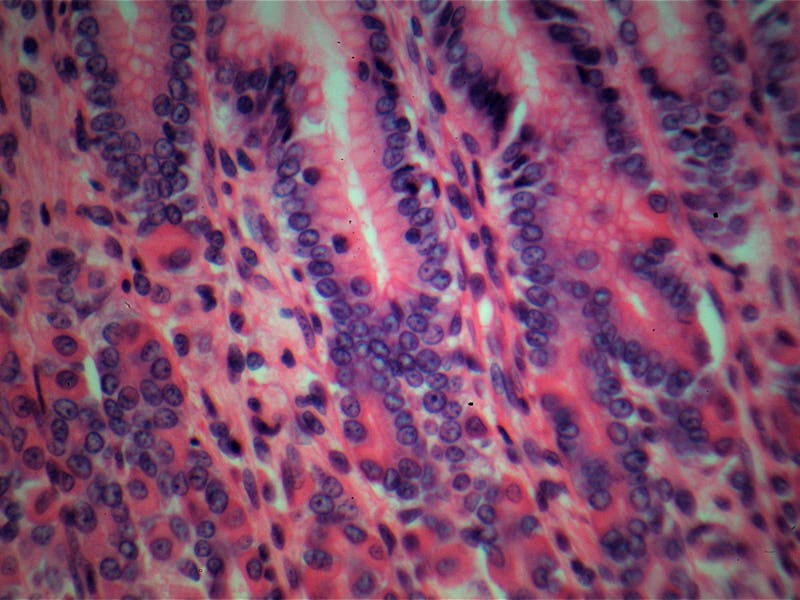Could Ingestible Sensors Usher in a New Kind of Personal Technology?
"Swallowables," could be the next way to monitor the health of your gut.

The future of wearable and personal technology means the ability to measure so many different biometrics produced by your physiology — be it your heartbeat, movement and physical exertion, brain activity, whatever. And soon, you’ll be able to ingest some sensors and collect data about your insides.
“Swallowables” are upon us, people.
Christopher Bettinger and other materials science and biomedical engineers at Carnegie Mellon University have spent many years working on developing edible electronics as a way to observe the gut for signs of infection and aberrant gastrointestinal activity, as well as to study the microbiome and a whole slew of other medical applications.
There are two big obstacles to making these sensors work: One is finding a suitable material for the sensor and its circuits that will both work inside the body as well as the safety of the person swallowing the thing. The other challenge is making sure these sensors work while they’re sitting around in intestines. You can’t just stick a triple-A battery on the back and keep it running. So what’s the plan?
For the CMU team, the answer is using silicon circuitry encapsulated in biodegradable hydrogel — and using stomach acid itself to power the sensor. Bettinger and his colleagues outline their findings in a paper just published in the journal Trends in Biotechnology.
The researchers built a battery using a cathode made of melanin (the pigment that puts color in your skin) and an anode made of manganese oxide (a mineral used in the function of nerves). The battery activates in the presence of stomach juices that facilitate electrolyte transport and current.
It’s actually a pretty efficient design. In lab tests, the battery was able to provide five milliwatts of power for 20 hours — all from something with dimensions of just a few millimeters on any side.
This could be the breakthrough needed in getting edible electronics to be a realistic form of technology. Other biotech companies are already trying to push forward ingestible sensors to the market. The FDA already approved of an ingestible sensor used to measure data about the gut, which might soon be coupled with the mental health drug Abilify to monitor drug uptake.
Beyond that, with an explosion in interest in probiotics and the microbiome, ingestible sensors could be an extremely useful way for health fanatics to keep track of how their diet is affecting their intestinal health, and how they can go about modifying their food intake to maintain healthy gut flora.